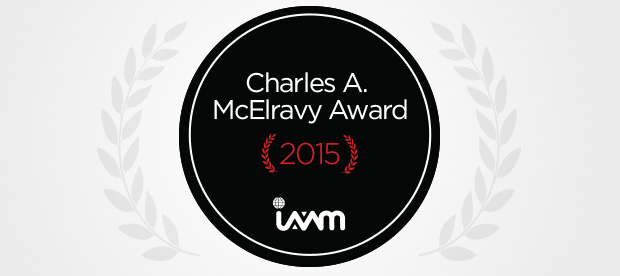SXSW15: The New Cathedral: Sports Stadiums
Brian Mirakian is a smart man. He is the director of Populous Activate in the Americas, and he presented a wonderful, thoughtful session at this year’s South by Southwest conference in Austin, Texas. His session, “The New Cathedral: Sports Stadiums,” took a look at the past, present, and future of stadium design.
“We’re moving rapidly from a spectator culture to participant culture, and the next generation fan wants access and interaction with the athletes on the field,” Mirakian wrote in session recap on Populous.com.
In the recap, Mirakian offers 10 ways to look at what has become a cathedral to many: the sports stadium. Let’s look at the first five, along with some quotes from Mirakian.
1. The new cathedral is… the same as the old cathedral.
“In the same way that the Roman Coliseum was a symbol for the community and captured a distinct sense of place that brought people together, the future stadium will communicate the spirit of its city and its culture.”
2. The new cathedral is… designed for the experientialist.
“The next gen experientialist fan wants to participate, explore, interact with brands, socially congregate in areas connected to the action and make memories with friends beyond the seating bowl.”
3. The new cathedral is… embedded and reactive.
“Our buildings can actually become responsive to fans—whether through reactive surfaces or embedded architecture (like we saw in the London 2012 Main Stadium) or the future use of augmented reality technology.”
4. The new cathedral is… a place that interconnects fans and athletes.
“By using next generation data analytics, it’s not hard to imagine that fans will be able to capture, follow, and experience what their favorite athlete experiences in a game.”
5. The new cathedral is… home to a global audience.
“93 percent of NFL fans will never step foot in an NFL stadium … which means franchises now have to understand their fan base and brand exists everywhere and must challenge themselves to engage a global audience of fans who aren’t in the building.”
Mirakian affirmed that technology will not kill stadiums, because of our human nature.
“People will aways want to share a social experience together,” he said. “It’s what makes us human.”
Please visit Populous.com to learn about the other five ways sports stadiums are evolving.
(Image: Populous)
SXSW15: The In-Stadium Fan Experience in MLS
It’s no secret that soccer in the U.S. is popular.
“More fans are watching, and each new team brings its own authentic crew of supporters groups’ along with it, a very important improvement over 20 years ago, when the league seemed to market itself exclusively to nuclear families and soccer moms, an experiment that didn’t pan out,” Gary Singh wrote in our feature about the sport.
Soccer’s popularity was evident during a standing-room only session at the 2015 South by Southwest conference. The session—moderated by SportsCenter Anchor Max Bretos—featured three Major League Soccer owners who talked about why the sport is popular and how they’re using technology to attract more fans.
“Going after the young, hip, tech-savvy crowd has been a huge advantage for us because they’re excited and enthusiastic about the sport,” said Adrian Hanauer, owner of the Seattle Sounders FC. “We made conscious decisions to appeal to the ‘cool’ kids. Once we got them, then the families followed.”
Sporting Kansas City Owner and CEO Robb Heineman spoke about the importance of branding.
“We want fans to feel like they’re part of a brand rather than fan of the brand,” Heineman said. “We want everyone to feel like a VIP.”
Concerning technology, Portland Timbers Owner Merritt Paulson said that his club uses tech where it can help them and not just for its own sake. He noted that he’d rather have people watching the game than a phone.
Heineman had a different view.
“Our mobile goal is to find out who is in a venue and what they’re doing,” Heineman said. “I love following games on Twitter, we push team news through social media, and I do ‘flying tweet’ Q&As during long flights.”
You could tell Heineman loves the sport and everything that revolves around the game-day experience.
“Soccer is a perfect game when played in a great venue,” he said.
Judging by the applause volume, many in attendance agreed.
Amid Concerns, Powdered Alcohol is Approved for Sale
The Alcohol and Tobacco Tax and Trade Bureau approved Palcohol this week, and states and legislators are taking action to ensure the product won’t have buyers.
Palcohol is powdered alcohol. One packet mixed with six ounces of water equals the same alcohol content as one standard mixed drink. The company that makes the product claims that packets, which measure four inches by six inches, are hard to conceal. Oh, please.
“I am in total disbelief that our federal government has approved such an obviously dangerous product, and so, Congress must take matters into its own hands and make powdered alcohol illegal,” said U.S. Senator Chuck Schumer (D-New York) in a statement. “Underage alcohol abuse is a growing epidemic with tragic consequences, and powdered alcohol could exacerbate this. We simply can’t sit back and wait for powdered alcohol to hit store shelves across the country, potentially causing more alcohol-related hospitalizations, and God forbid, deaths. This legislation will make illegal the production and sale of this Kool-Aid for underage drinking.”
Schumer’s legislation will include language that explicitly bans the production, sale, distribution, or possession of powdered alcohol as a provision of the Sober Truth on Preventing Underage Drinking Reauthorization (STOP) Act.
Some states, though, have already banned Palcohol, such as Louisiana, South Carolina, and Vermont. Other states, such as Colorado, New York, and Rhode Island, are in the process of banning it. Palcohol can’t be sold in Massachusetts because that state defines an alcoholic beverage as a liquid.
Sure, people sneak legal and illegal things into events all the time but this one could really have an adverse affect on alcohol sales. What would you, as a venue professional, do to stay one step ahead of this development?
(Image: Palcohol)
Steve Peters, CFE, Honored by IAVM with the Prestigious Charles A. McElravy Award
The International Association of Venue Managers (IAVM) is pleased to announce Steve Peters, CFE, founder and president of VenuWorks, as the recipient of the 2015 Charles A. McElravy Award. The McElravy Award, named in honor of one of IAVM’s founding organizers, Charles A. McElravy, was initiated in 1963 and is granted for extraordinary contributions to the Association and the professional venue management industry it serves.
 A graduate of the MFA program in Arts Administration at the University of Iowa, Peters began his career in 1976 in Dubuque, Iowa, as manager of the Five Flags Center.
A graduate of the MFA program in Arts Administration at the University of Iowa, Peters began his career in 1976 in Dubuque, Iowa, as manager of the Five Flags Center.
In 1982, Peters moved on to the Iowa State Center in Ames, Iowa, a four-building complex at Iowa State University. While at ISU, he began the successful presentation of concerts in the 55,000-seat Cyclone Stadium and served as director of the acclaimed Ames International Orchestra Festival.
In 1990, Peters was named the National Director of Operations for Ogden Entertainment Inc., serving as opening director of the Target Center in Minneapolis, Minnesota, for Ogden before being named an Ogden vice president in 1995.
In fall 1996, Peters left Ogden to form VenuWorks (originally called Compass Facility Management), a company he created to better serve the unique management and operational challenges of mid-market facilities. Today, VenuWorks provides management services to more than 50 theatres, arenas, conference centers, stadiums, and outdoor amphitheaters in 12 states. Peters was a forerunner of bringing private management to publically owned venues in secondary and tertiary markets, which was a new approach in the 1990s.
Peters has been a committed member of IAVM since 1977, serving as president of the board of directors from 2007-2008, and as vice president of District 3 from 1987-1988. He was a member of the first board of regents for IAVM’s Venue Management School, where he served as an instructor for six years. He has earned the distinction of Certified Facilities Executive (CFE), the highest professional certification available in the public assembly facility industry.
Kim Bedier, CFE, chair of the IAVM board remarked that, “Steve Peters’ long legacy of leadership with IAVM includes the Mission, Membership, and Governance Initiative. Author Dau Voire said, ‘Be brave enough to start a conversation that matters.’ The conversations commenced by Steve continue to guide IAVM to a strong and healthy future. Steve Peters is a true gentleman, and it has been my honor to serve for and with him.”
“It is because of leaders like Steve that IAVM is such a great organization,” said Vicki Hawarden, CMP, president and CEO of IAVM. “He has given tirelessly of his time and his expertise throughout the years to help develop and grow those around him, and I know there are many who look up to him as a mentor. He is well deserving of this honor based on his contributions, his leadership style, and his love for the industry.”
Upon being notified of receiving the award, Peters offered the following comments:
“I am honored to have been chosen to receive the 2015 McElravy Award. IAVM has been like a big second family to me, a source of professional development and personal friendships for nearly 40 years. I am humbled to find myself among the small group of extraordinary leaders who have previously received this award, an award named for one of the real pioneers of our industry. I am eternally grateful.”
The award will be presented during IAVM’s annual conference and trade show, VenueConnect, August 1-4, 2015, in Baltimore, Maryland.
A Hockey Game in Virtual Reality
The L.A. Kings and San Jose Sharks’ NHL Stadium Series game at Levi’s Stadium was streamed in 360-degree, high-definition virtual reality when it was played on February 21. The experience was a collaboration among the hockey league, cloud graphics start-up Otoy, New Deal Studios, and Immersive Media. Those watching it through an Oculus Rift or a Samsung Gear VR virtual reality device viewed the game-day activities like they were there in person.
“The creators tried to recreate the experience of all facets of being at the game, from the ability to watch practice sessions as if you’re sitting on the players’ bench to pre-game activities including tailgating, gate entry, and concessions, culminating in a front-row seat to the game with an eyeline just above the glass and over the rink that lets you follow plays or turn around to see what’s happening behind the net,” Dean Takahashi reported for VentureBeat.com.
If you’re interested in learning more about virtual reality and how it can be used in venue, check out our feature, “A Multitude of Realities,” from our Technology & Trends issue. And please visit VentureBeat.com for more on the NHL story.
(Image: Otoy)
Do you want to receive a Front Row News weekly digest?
Categories
- Allied (856)
- Architecture (147)
- Arenas (744)
- Career (890)
- Convention Centers (889)
- Education (608)
- Events (1,528)
- Food & Beverage (193)
- Foundation (113)
- Guest Experience (1,482)
- Industry News (2,253)
- Leadership (1,872)
- Marketing (150)
- Membership (1,985)
- Music (212)
- Performing Arts Centers (453)
- Professional Development (398)
- Research (127)
- Safety & Security (425)
- Sports (763)
- Stadiums (607)
- Student (159)
- Technology (515)
- Ticketing (92)
- Touring (82)
- Trends (357)
- Uncategorized (771)
- Universities (216)
- Video (25)
- Young Professional (198)
Twitter Feed
- Twitter feed loading
Recent Posts
- GEODIS Park Selects Allied Universal As Its Preferred Event Services Provider
- Venuworks Appoints Marc Solis as Executive Director of the Fresno Convention and Entertainment Center
- Los Angeles Convention Center Diverts 8,000 Pounds of Wood Waste to Local Foundation Supporting Fire Victims
- Fort Worth Unveils Plans for Phase 2 of Convention Center Transformation
- San Diego Convention Center CEO Announces Retirement After a Decade of Leadership
Categories
- Allied
- Architecture
- Arenas
- Career
- Convention Centers
- Education
- Events
- Food & Beverage
- Foundation
- Guest Experience
- Industry News
- Leadership
- Marketing
- Membership
- Music
- Performing Arts Centers
- Professional Development
- Research
- Safety & Security
- Sports
- Stadiums
- Student
- Technology
- Ticketing
- Touring
- Trends
- Uncategorized
- Universities
- Video
- Young Professional
Archives
- February 2026
- January 2026
- December 2025
- November 2025
- October 2025
- September 2025
- August 2025
- July 2025
- June 2025
- May 2025
- April 2025
- March 2025
- February 2025
- January 2025
- December 2024
- November 2024
- October 2024
- September 2024
- August 2024
- July 2024
- June 2024
- May 2024
- April 2024
- March 2024
- February 2024
- January 2024
- December 2023
- November 2023
- October 2023
- September 2023
- August 2023
- July 2023
- June 2023
- May 2023
- April 2023
- March 2023
- February 2023
- January 2023
- December 2022
- November 2022
- October 2022
- September 2022
- August 2022
- July 2022
- June 2022
- May 2022
- April 2022
- March 2022
- February 2022
- January 2022
- December 2021
- November 2021
- October 2021
- September 2021
- August 2021
- July 2021
- June 2021
- May 2021
- April 2021
- March 2021
- February 2021
- January 2021
- December 2020
- November 2020
- October 2020
- September 2020
- August 2020
- July 2020
- June 2020
- May 2020
- April 2020
- March 2020
- February 2020
- January 2020
- December 2019
- November 2019
- October 2019
- September 2019
- August 2019
- July 2019
- June 2019
- May 2019
- April 2019
- March 2019
- February 2019
- January 2019
- December 2018
- November 2018
- October 2018
- September 2018
- August 2018
- July 2018
- June 2018
- May 2018
- April 2018
- March 2018
- February 2018
- January 2018
- December 2017
- November 2017
- October 2017
- September 2017
- August 2017
- July 2017
- June 2017
- May 2017
- April 2017
- March 2017
- February 2017
- January 2017
- December 2016
- November 2016
- October 2016
- September 2016
- August 2016
- July 2016
- June 2016
- May 2016
- April 2016
- March 2016
- February 2016
- January 2016
- December 2015
- November 2015
- October 2015
- September 2015
- August 2015
- July 2015
- June 2015
- May 2015
- April 2015
- March 2015
- February 2015
- January 2015
- December 2014
- November 2014
- October 2014
- September 2014
- August 2014
- July 2014
- June 2014
- May 2014
- April 2014
- March 2014
- February 2014
- January 2014
- December 2013
- November 2013
- October 2013
- September 2013
- August 2013
- July 2013
- June 2013
- May 2013
- April 2013
- March 2013
- February 2013
- January 2013
- May 2012
- March 2012
- December 2011
- November 2011
- October 2011
Recent Comments
- Frank Bradshaw, Ph.D., CVE on John Meyer, CVE, a Tireless Advocate of Certification for Venue Professionals, Has Died
- Neil Sulkes on Hilary Hartung, Friend to Many in Venue Marketing, Has Left Us
- Jason Parker, CVE on The Devastation of Hurricane Helene and How We Can Support One Another
- Larry Perkins on Touhey Testifies Against Speculative Ticketing Before Congressional Subcommittee
- Peter Secord on Major Players for Planned Elkhart Amphitheater Were in the Mix at VenueConnect





